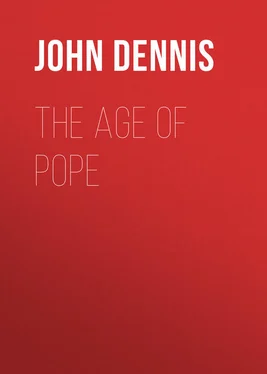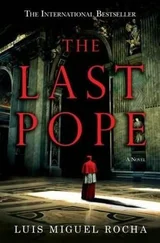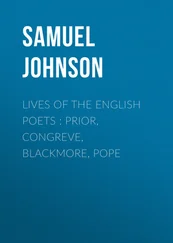John Dennis - The Age of Pope
Здесь есть возможность читать онлайн «John Dennis - The Age of Pope» — ознакомительный отрывок электронной книги совершенно бесплатно, а после прочтения отрывка купить полную версию. В некоторых случаях можно слушать аудио, скачать через торрент в формате fb2 и присутствует краткое содержание. Жанр: foreign_antique, foreign_prose, на английском языке. Описание произведения, (предисловие) а так же отзывы посетителей доступны на портале библиотеки ЛибКат.
- Название:The Age of Pope
- Автор:
- Жанр:
- Год:неизвестен
- ISBN:нет данных
- Рейтинг книги:3 / 5. Голосов: 1
-
Избранное:Добавить в избранное
- Отзывы:
-
Ваша оценка:
- 60
- 1
- 2
- 3
- 4
- 5
The Age of Pope: краткое содержание, описание и аннотация
Предлагаем к чтению аннотацию, описание, краткое содержание или предисловие (зависит от того, что написал сам автор книги «The Age of Pope»). Если вы не нашли необходимую информацию о книге — напишите в комментариях, мы постараемся отыскать её.
The Age of Pope — читать онлайн ознакомительный отрывок
Ниже представлен текст книги, разбитый по страницам. Система сохранения места последней прочитанной страницы, позволяет с удобством читать онлайн бесплатно книгу «The Age of Pope», без необходимости каждый раз заново искать на чём Вы остановились. Поставьте закладку, и сможете в любой момент перейти на страницу, на которой закончили чтение.
Интервал:
Закладка:
For some years Pope had been brooding over and slowly labouring at a task which was destined to add greatly to his fame and also to his fortune.
In 1708 his early friend, Sir William Trumbull, had advised him to translate the Iliad , and five years later the poet, following the custom of the age, invited subscriptions to the work, which was to appear in six volumes at the price of six guineas. About this time Swift, who by the aid of his powerful pen was assisting Harley and St. John to rule the country, made Pope's acquaintance, and ultimately became perhaps the most faithful of his friends. Swift, who was able to help everybody but himself, zealously promoted the poet's scheme, and was heard to say at the coffee-houses that 'the best poet in England Mr. Pope a Papist' had begun a translation of Homer which he should not print till he had a thousand guineas for him.
He was not satisfied with this service, but introduced the poet to St. John, Atterbury, and Harley. The first volume of Pope's Homer appeared in 1715, and in the same year Addison's friend Tickell published his version of the first book of the Iliad . Pope affected to believe that this was done at Addison's instigation.
Already, as we have said, there had been a misunderstanding between the two famous wits, and Pope, whose irritable temperament led him into many quarrels and created a host of enemies, ceased from this time to regard Addison as a friend. Probably neither of them can be exempted from blame, and we can well believe that Addison, whose supremacy had formerly been uncontested, could not without some jealousy 'bear a brother near the throne,' but the chief interest of the estrangement to the literary student is the famous satire written at a later date, in which Addison appears under the character of Atticus. 13 13 See the Epistle to Dr. Arbuthnot.
It is necessary to add here that the whole story of the quarrel comes to us from Pope, who is never to be trusted, either in prose or verse, when he wishes to excuse himself at the expense of a rival.
Pope had no cause for discontent at his position; not even the strife of parties stood in the way of his Homer , which was praised alike by Whig and Tory, and brought the translator a fortune. It has been calculated that the entire version of the Iliad and Odyssey , the payments for which covered eleven years, yielded Pope a clear profit of about £9,000, and it is said to have made at the same time the fortune of his publisher. Pope, I believe, was the first poet who, without the aid of patronage or of the stage, was able to live in comfort from the sale of his works.
He knew how to value money, but fame was dearer to him than wealth, and of both he had now enough to satisfy his ambition. Posterity has not endorsed the general verdict of his contemporaries on his famous translation. He had to encounter indeed some severe comments, and Richard Bentley, the greatest classical scholar then living, must have vexed the sensitive poet when he told him that his version was a pretty poem but he must not call it Homer. By this criticism, however, as Matthew Arnold has observed, the work is judged in spite of all its power and attractiveness. Pope wants Homer's simplicity and directness, and his artifices of style are utterly alien to the Homeric spirit. Dr. Johnson quotes the judgment of critics who say that Pope's Homer 'exhibits no resemblance of the original and characteristic manner of the Father of Poetry, as it wants his awful simplicity, his artless grandeur, his unaffected majesty,' and observes that this cannot be totally denied. He argues, however, that even in Virgil's time the demand for elegance had been so much increased that mere nature could be endured no longer, that every age improves in elegance, that if some Ovidian graces are, alas! not to be found in the English Iliad 'to have added can be no great crime if nothing be taken away.' Johnson was not aware that to add 'poetical elegances' to the words and thoughts of a great poet is to destroy much of the beauty of his verse and many of its most striking characteristics. As well might he say that the beauty of a lovely woman can be enhanced by a profusion of trinkets, or that a Greek statue would be more worthy of admiration if it were elegantly dressed. Dr. Johnson says, with perfect truth, that Pope wrote for his own age, and it may be added that he exhibits extraordinary art in ministering to the taste of the age; yet it is hardly too much to affirm that in the exercise of his craft as a translator he is continually false to nature and therefore false to Homer.
On the other hand his Iliad if read as a story runs so smoothly, that the reader, and especially the young reader, is carried through the narrative without any sense of fatigue. It is not a little praise to say that it is a poem which every school-boy will read with pleasure, and in which every critical reader who is content to surrender his judgment for awhile, will find pleasure also. Mr. Courthope in his elaborate and masterly Life of Pope , which gives the coping stone to an exhaustive edition of the poet's works, praises a fine passage from the Iliad , which in his judgment attains perhaps the highest level of which the heroic couplet is capable, and 'I do not believe,' he adds, 'that any Englishman of taste and imagination can read the lines without feeling that if Pope had produced nothing but his translation of Homer, he would be entitled to the praise of a great original poet.'
Pope's editor could not perhaps have selected a better illustration of his best manner than this speech of Sarpedon to Glaucus, which is parodied in the Rape of the Lock . The concluding lines shall be quoted.
'Could all our care elude the gloomy grave,
Which claims no less the fearful than the brave,
For lust of fame I should not vainly dare
In fighting fields, nor urge the soul to war,
But since, alas! ignoble age must come,
Disease, and death's inexorable doom;
The life which others pay let us bestow,
And give to fame what we to nature owe;
Brave though we fall, and honoured if we live,
Or let us glory gain, or glory give.'
We may add that neither its false glitter nor Pope's inability – shared in great measure with every translator – to catch the spirit of the original, can conceal the sustained power of this brilliant work. Its merit is the more wonderful since the poet's knowledge of Greek was extremely meagre, and he is said to have been constantly indebted to earlier translations. Gibbon said that his Homer had every merit except that of faithfulness to the original; and Pope, could he have heard it, might well have been satisfied with the verdict of Gray, a great scholar as well as a great poet, that no other version would ever equal his.
All that has been hitherto said with regard to Pope and Homer relates to his version of the Iliad . On that he expended his best powers, and on that it is evident he bestowed infinite pains. The Odyssey , one of the most beautiful stories in the world, appears to have been taken up with a weary pen, and in putting it into English he sought the assistance of Broome and Fenton, two minor poets and Cambridge scholars. They translated twelve books out of the twenty-four, and so skilfully did they catch Pope's style that it is almost impossible to discern any difference between his work and theirs. The literary partnership led to one of Pope's discreditable manœuvres, in which, strange to say, he was assisted by Broome, whom he induced to set his name to a falsehood. Pope as we have said, translated twelve books, while eight were allotted to Broome and four to Fenton. Yet he led Broome, unknown to his colleague, to ascribe only three books to himself and two to Fenton, and at the same time the poet, who confessed that he could 'equivocate pretty genteely,' stated the amount he had paid for Broome's eight books as if it had been paid for three. The story is disgraceful both to Pope and Broome, and why the latter should have practised such a deception is unaccountable. He was a beneficed clergyman and a man of wealth, so that he could not have lied for money even if Pope had been willing to bribe him. Fenton was indignant, as he well might be, but he was too lazy or too good-natured to expose the fraud. Broome had his deserts later on, but Pope, who ridiculed him in the Dunciad , and in his Treatise on the Bathos , was the last man in the world entitled to render them.
Читать дальшеИнтервал:
Закладка:
Похожие книги на «The Age of Pope»
Представляем Вашему вниманию похожие книги на «The Age of Pope» списком для выбора. Мы отобрали схожую по названию и смыслу литературу в надежде предоставить читателям больше вариантов отыскать новые, интересные, ещё непрочитанные произведения.
Обсуждение, отзывы о книге «The Age of Pope» и просто собственные мнения читателей. Оставьте ваши комментарии, напишите, что Вы думаете о произведении, его смысле или главных героях. Укажите что конкретно понравилось, а что нет, и почему Вы так считаете.












